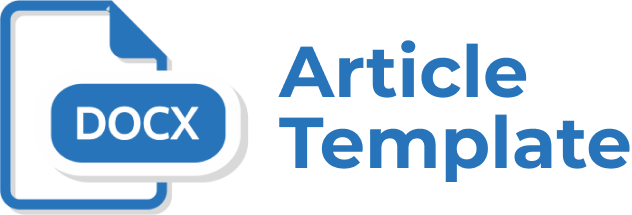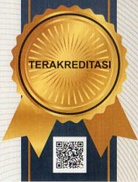Online Zakat Payment Intentions in Post-Fraud Exposure: The Moderating Roles of Perceived Behavioral Control and Media Literacy
Abstract
Keywords
References
Abdillah, L. A. (2021). Digital Transformation of Zakat Collection through Marketplace and Fintech in Pandemic Era. 5th International Conference of Zakat Proceedings, 587–592.
Agustini, S., Situmeang, A., & Agustianto, A. (2024). Legal Analysis Regarding Donation Fraud Through Online Media. Justisi, 10(2), 282–295. https://doi.org/10.33506/js.v10i2.2852
Ahmad, N., Roslin, R. I., & Nazrin, N. F. S. (2021). Analysing the Drivers Affecting the Intention To Use Online Zakat Payment Among Muslim in Shah Alam, Selangor. International Journal of Islamic Business, 16(1), 32–48. https://doi.org/10.32890/ijib2021.6.1.3
Aïmeur, E., Amri, S., & Brassard, G. (2023). Fake News, Disinformation and Misinformation in Social Media: A Review. Social Network Analysis and Mining, 13(30), 1–36. https://doi.org/10.1007/s13278-023-01028-5
Aji, H. M., Albari, A., Muthohar, M., Sumadi, S., Sigit, M., Muslichah, I., & Hidayat, A. (2021). Investigating the Determinants of Online Infaq Intention during the COVID-19 Pandemic: An Insight from Indonesia. Journal of Islamic Accounting and Business Research, 12(1), 1–20. https://doi.org/10.1108/JIABR-05-2020-0136
Albalawee, N., & Al Fahoum, A. S. (2023). Islamic Legal Perspectives on Digital Currencies and How They Apply to Jordanian Legislation. F1000Research, 12, 1–14. https://doi.org/10.12688/f1000research.128767.1
Antonio, M. S., Laela, S. F., & Al Ghifari, D. M. (2020). Optimizing Zakat Collection in the Digital Era: Muzakki’s Perception. Jurnal Dinamika Akuntansi Dan Bisnis, 7(2), 235–254. https://doi.org/10.24815/jdab.v7i2.16597
Anwar, S. (2021). The Need for Improvement of Digital Literacy to Fighting Against Fake News in Indonesia. Webology, 18(Special Issue), 630–645. https://doi.org/10.14704/WEB/V18SI05/WEB18251
Aziz, M. R. A., & Anim, N. A. H. M. (2020). Trust towards Zakat Institutions among Muslims Business Owners. Jurnal Ekonomi & Keuangan Islam, 6(1), 1–9. https://doi.org/10.20885/jeki.vol6.iss1.art1
Chaudhry, M. S., Sabir, H. M., Rafi, N., & Kalyar, M. N. (2011). Exploring the Relationship Between Salary Satisfaction and Job Satisfaction: A Comparison of Public and Private Sector Organization. The Journal of Commerce, 3(4), 1–14.
Cheung, G. W., Cooper-Thomas, H. D., Lau, R. S., & Wang, L. C. (2024). Reporting Reliability, Convergent and Discriminant Validity with Structural Equation Modeling: A Review and Best-practice Recommendations. In Asia Pacific Journal of Management (Vol. 41, Issue 2). Springer US. https://doi.org/10.1007/s10490-023-09871-y
Damirah, Sahrani, & Musmulyadi. (2024). Zakat Literacy: Digital Islamic Finance in Community Economic Development. Dinar: Jurnal Ekonomi & Keuangan Islam, 12(1), 37–50.
Doktoralina, M. C., & Bahari, Z. (2019). Integrity and Hisbah in the Zakat Management Mechanism on Zakat Institutions. Journal of Islamic, Social, Economics and Development (JISED), 4(26), 24–33.
Guven, H. (2020). Industry 4.0 and Marketing 4.0: In Perspective of Digitalization and E-Commerce. Agile Business Leadership Methods for Industry 4.0, 25–46. https://doi.org/10.1108/978-1-80043-380-920201003
Hair, J. F., Babin, B. J., & Krey, N. (2017). Corrigendum to: Covariance-Based Structural Equation Modeling in the Journal of Advertising: Review and Recommendations. Journal of Advertising, 46(3), 454. https://doi.org/10.1080/00913367.2017.1329496
Hakim, M. M., Sutarmin, Sugiyanto, & Budiarti, W. (2024). How False Advertising Victims’ Experiences Define Their Online Purchase Decision in Fashion Product ? - Comparison between Generations. JDM: Jurnal Dinamika Manajemen, 15(2), 250–268. https://doi.org/10.15294/jdm.v15i2.10568
Hamsin, M. K., Halim, A., & Anggriawan, R. (2024). Securing Digital Zakat Transactions from Fraud in a Smart Society: Legal Insights and Recommendations. E3S Web of Conferences, 594(07001), 1–12. https://doi.org/10.1051/e3sconf/202459407001
Hussain, Z., Sultan, R., Arif, M., & Ali, A. (2022). The Impact of Zakat Literacy, Trust, and the Accessibility of Digital Payments on Generation Z and Y’s Intention to Pay Zakat to Central Zakat Fund, the State Bank of Pakistan. International Journal of Zakat, 7(2), 105–114.
Jannah, S., & Faisol, I. A. (2022). Analysis of Fraud Prevention and Detection Islamic Boarding School Fund Management. International Colloquium on Forensic Accounting and Governance (ICFAG), 2(1), 9–18. https://conference.trunojoyo.ac.id/pub/index.php/icfag/article/view/100
Kamaruddin, M. I. H., Muhamed, N. A., Radzi, R. M., Nazarie, W. N. F. W. M., & Kamarubahrin, A. F. (2023). Financial Management Practices in Islamic Donation-based Crowdfunding (DCF) Platforms in Malaysia. Future Business Journal, 9(1), 1–14. https://doi.org/10.1186/s43093-023-00210-7
Kasri, R. A., & Sosianti, M. W. (2023). Determinants of the Intention to Pay Zakat Online: The Case of Indonesia. Journal of Islamic Monetary Economics and Finance, 9(2), 275–294. https://doi.org/10.21098/jimf.v9i2.1664
Kenang, I. H., & Gosal, G. (2021). Factors Affecting Online Donation Intention in Donation-based Crowdfunding. The Winners, 22(2), 97–104. https://doi.org/10.21512/tw.v22i2.7101
Lubis, M., Lubis, A. R., & Almaarif, A. (2019). Comparison of the Approach in the Zakat Management System. Journal of Physics: Conference Series, 1235(1), 1–7. https://doi.org/10.1088/1742-6596/1235/1/012048
Malik, A., Alrasyid, H., & Kamaruddin, M. M. (2024). Student Compliance in Paying Zakat: Do Zakat Literacy and Awareness Matter? Asian Journal of Islamic Management (AJIM), 6(1), 63–73. https://doi.org/10.20885/ajim.vol6.iss1.art6
Maulida, S., Amruzi, F. Al, Hakim, B. R., & Beik, I. S. (2022). Problems and Solutions in Zakat Digitalization: Evidence from South Kalimantan, Indonesia. Jurnal Ekonomi & Keuangan Islam, 8(1), 94–109. https://doi.org/10.20885/jeki.vol8.iss1.art7
Meerangani, K. A., Mad Sharipp, M. T., Hamid, M. F. A., Hashim, S. N. I., Rameli, M. F. P., & Rosele, M. I. (2022). Digitalisation of Zakat Management System in Malaysia: Potential and Challenges. International Journal of Academic Research in Economics and Management Sciences, 11(2), 323–337. https://doi.org/10.6007/ijarems/v11-i2/13984
Memon, M. A., Ting, H., Cheah, J.-H., Thurasamy, R., Chuah, F., & Cham, T. H. (2020). Modeling Sample Size for Survey Research: Review and Recommendations. Journal of Applied Structural Equation Modeling, 4(2), 2590–4221.
Purba, A. B., & Sihombing, J. S. (2023). The Integration of Theology and Technology : Exploring the Impact of Digitalization on Religious Understanding. International Conference of Omnibus Omnia, 1, 93–96.
Purwanto, A., & Sudargini, Y. (2021). Partial Least Squares Structural Squation Modeling (PLS-SEM) Analysis for Social and Management Research: A Literature Review. Journal of Industrial Engineering & Management Research, 2(4), 114–123. https://doi.org/10.7777/jiemar.v2i4
Rasoolimanesh, S. M., & Ali, F. (2018). Guest Editorial: Partial Least Square-Structural Equation Modeling in Hospitality and Tourism. Journal of Hospitality and Tourism Technology, 9(3), 238–248. https://doi.org/10.1108/JHTT-10-2018-142
Rijanto, A. (2018). Donation-based Crowdfunding as Corporate Social Responsibility Activities and Financing. Journal of General Management, 43(2), 79–88. https://doi.org/10.1177/0306307017748125
Rofiq, A. (2012). Impact of Cyber Fraud and Trust of E-Commerce System on Purchasing Intentions: Analysing Planned Behaviour in Indonesian Business [University of Southern Queensland]. https://eprints.usq.edu.au/23432/1/Rofiq_2012_whole.pdf
Rosele, M. I., Muneem, A., Rahman, N. N. B. A., & Ali, A. K. (2022). The Digitalized Zakat Management System in Malaysia and the Way Forward. Al-Ihkam: Jurnal Hukum Dan Pranata Sosial, 17(1), 242–272. https://doi.org/10.19105/AL-LHKAM.V17I1.5365
Rosyadhi, R. I., & Salim, A. (2022). Islamic Economic Perspective and Potential of Zakah Imposement on Cryptocurrency. Journal of Islamic Economic Laws, 5(1), 61–83. https://doi.org/10.23917/jisel.v5i1.17204
Salleh, W. N. A. W. M., Rasid, S. Z. A., & Basiruddin, R. (2022). Optimising Digital Technology in Managing Zakat. International Journal of Academic Research in Business and Social Sciences, 12(8), 726–733. https://doi.org/10.6007/ijarbss/v12-i8/14355
Snyder, J., Crooks, V. A., Mathers, A., & Chow-White, P. (2017). Appealing to the Crowd: Ethical Justifications in Canadian Medical Crowdfunding Campaigns. Journal of Medical Ethics, 43(6), 364–367. https://doi.org/10.1136/medethics-2016-103933
Sunarya, S. L., & Al Qital, S. (2022). Digital Management on Zakat Institutions: Mapping Using Biblioshiny R. Review of Islamic Social Finance and Entrepreneurship, 1(2), 97–108. https://doi.org/10.20885/risfe.vol1.iss2.art2
Takdir, Muhajir, M. N. A., Jabani, M., & Erwin. (2023). The Effect of Perceived Behavioral Control, Perceived Served Quality, Intention, and Trust on Zakat Compliance Behavior Mediated by Religiosity. Iqtishadia, 16(2), 367–386. https://journal.iainkudus.ac.id/index.php/IQTISHADIA/article/view/22777
Toron, V. B., Waton, F. R., Dancar, A., Lelu Beding, S., & Watomakin, D. B. (2023). Integration of Digital Media in Religious Activities: Potential and Challenges for Catholic Education. Religió Jurnal Studi Agama-Agama, 13(2), 165–187. https://doi.org/10.15642/religio.v13i2.2481
Ur Rehman, A., Aslam, E., & Iqbal, A. (2021). Factors Influencing the Intention to Give Zakāt on Employment Income: Evidence from the Kingdom of Saudi Arabia. Islamic Economic Studies, 29(1), 33–49. https://doi.org/10.1108/ies-05-2020-0017
Utami, P., Basrowi, & Nasor, M. (2021). The Role of Digital Zakat Towards Economic Development at Slums in Indonesia. Journal of Business, Economics and Environmental Studies, 11(3), 45–51. https://doi.org/10.13106/ajbe.2021.vol11.no3.45
Utami, P., Suryanto, T., Nasor, M., & Ghofur, R. A. (2020). The Effect Digitalization Zakat Payment Against Potential of Zakat Acceptance in National Amil Zakat Agency. Iqtishadia, 13(2), 216. https://doi.org/10.21043/iqtishadia.v13i2.7809
Uyuni, B., Adawiyah, R. Al, Quddus, R., & Kasyifatudduja. (2024). Transformation of Dakwah Media in Inspiring Muslimah in the Digital Era. Al-Risalah: Jurnal Studi Agama Dan Pemikiran Islam, 15(2), 711–730. https://doi.org/10.34005/alrisalah.v15i2.3866
Vientiany, D., Arfa, F. A., & Ruslan, D. (2022). E-Zakat: Breakthroughs and Innovations in Information Technology in Increasing Zakat Receipts in Indonesia. International Journal of Artificial Intelligence Research, 6(1). https://doi.org/10.29099/ijair.v6i1.366
Yuan, D., Rahman, M. K., Issa Gazi, M. A., Rahaman, M. A., Hossain, M. M., & Akter, S. (2021). Analyzing of User Attitudes Toward Intention to Use Social Media for Learning. SAGE Open, 11(4), 1–13. https://doi.org/10.1177/21582440211060784
Yulandreano, E., & Rita, M. R. (2023). Investment Decisions on the Crowdfunding Platform Based on the Theory of Planned Behavior. Jurnal Manajemen Bisnis, 14(1), 36–52. https://doi.org/10.18196/mb.v14i1.16494
Zaimi, S. M., Muhamed, N. A., Nazarie, W. N. F. W. N. M., & Kamaruddin, M. I. H. (2023). Trust Issues on Donation-Based Crowdfunding: Potential Research for Islamic DCF. The 4th International Halal Management Conference (IHMC 2023), November, 52–57. https://www.researchgate.net/publication/377841716
Zhu, Y., & Jin, S. (2023). How Does the Digital Transformation of Banks Improve Efficiency and Environmental, Social, and Governance Performance? Systems, 11(328), 1–18. https://doi.org/10.3390/systems11070328
Zubaidah, S., & Afifah. (2020). Development of Zakat Management Digitalization in Indonesia. 4th International Conference of Zakat Proceedings, 459–468. https://doi.org/10.37706/iconz.2020.227
Zulfikri, Kassim, S., & Hawariyuni, W. (2021). Proposing Blockchain Technology Based Zakat Management Model to Enhance Muzakki’s Trust in Zakat Agencies: A Conceptual Study. Journal of Accounting Research, Organization and Economics, 4(2), 153–163. https://doi.org/10.24815/jaroe.v4i2.20467
DOI: https://doi.org/10.32487/jshp.v9i2.2388
Refbacks
- There are currently no refbacks.
JSHP: Jurnal Sosial Humaniora dan Pendidikan
is licensed under a Creative Commons Attribution-ShareAlike 4.0 International License (CC BY-SA 4.0)





